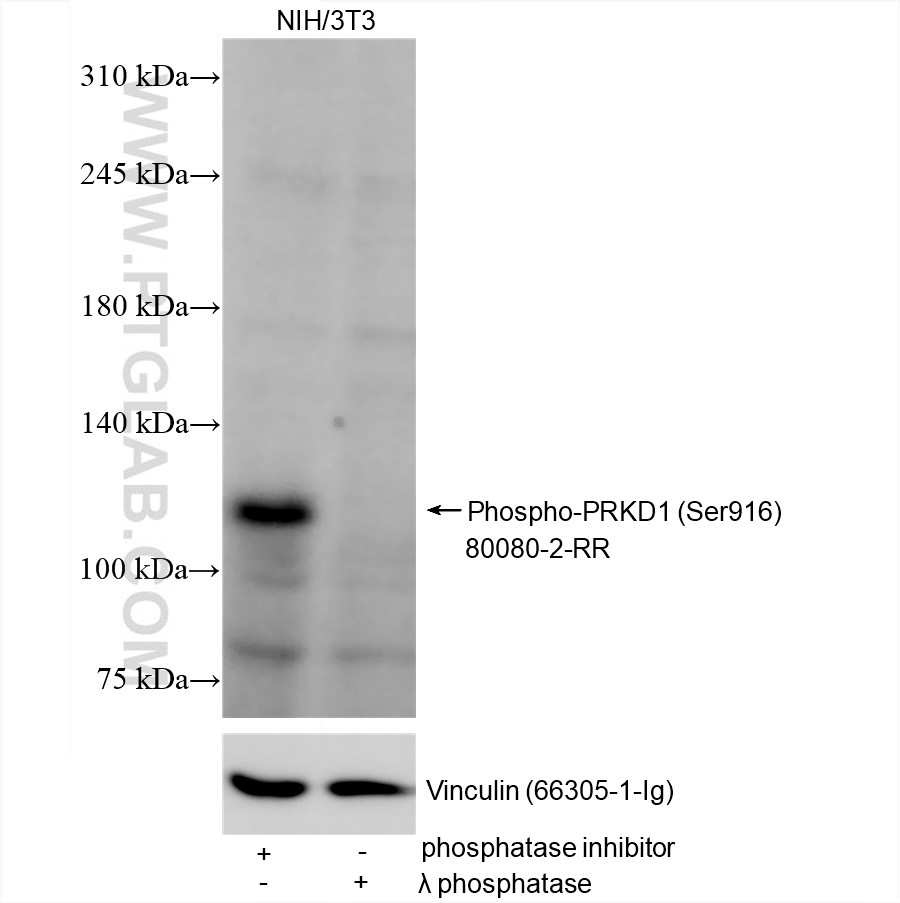Phospho-PRKD1 (Ser916) Recombinant antibody, PBS Only
Phospho-PRKD1 (Ser916) Uni-rAbTM Recombinant Antibody for WB, Indirect ELISA
Host / Isotype
Rabbit / IgG
Reactivity
human, mouse
Applications
WB, Indirect ELISA
Conjugate
Unconjugated
CloneNo.
241786A11
Cat no : 80080-2-PBS
Synonyms
Validation Data Gallery
Product Information
80080-2-PBS targets Phospho-PRKD1 (Ser916) in WB, Indirect ELISA applications and shows reactivity with human, mouse samples.
| Tested Reactivity | human, mouse |
| Host / Isotype | Rabbit / IgG |
| Class | Recombinant |
| Type | Antibody |
| Immunogen | Peptide |
| Full Name | protein kinase D1 |
| Calculated Molecular Weight | 102 kDa |
| Observed Molecular Weight | 115 kDa |
| GenBank Accession Number | NM_001330069 |
| Gene Symbol | PRKD1 |
| Gene ID (NCBI) | 5587 |
| Conjugate | Unconjugated |
| Form | Liquid |
| Purification Method | Protein A purfication |
| Storage Buffer | PBS Only |
| Storage Conditions | Store at -80°C. |
Background Information
Protein kinase D1 (PRKD1), also named as PKD1 and PKCμ, is comprised of two cysteine-rich domains and a pleckstrin homology (PH) domain. PKD1 is involved in cellular processes including protein secretion, proliferation, cytoskeletal reorganization, Golgi function, immune function and apoptosis. It is widely expressed in thyroid, brain, heart, lung and other tissues. PKCs have been shown to regulate PKD1 activation. It has been reported that ser 916 is a PKD1 autophosphorylation site. PKD1 can be activated by growth factors, oxidative stress, thrombin, bioactive lipids, cross-linking of B- and T-cell receptors and some G-protein coupled receptors (GPCR). PKD1 is located mainly in the cytoplasm in unstimulated cells, while PKD1 migrates to the membrane in activated cells. (PMID: 17306383, 24806360, 30101477, 21696630)



